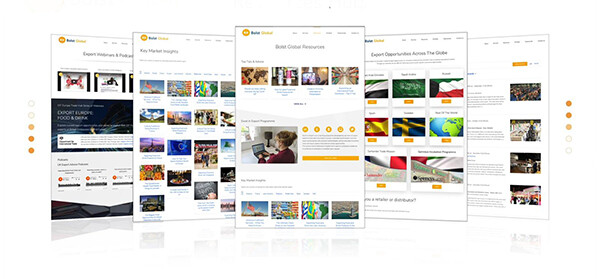What are incoterms?
Transcript
Hi it’s Victoria from Bolst Global and i hope you’re all doing very well, so i’m back with another FAQ and this one is around incoterms specifically, what are incoterms? and why are they important for international trade.
So if we start with the what are they well these are a globally recognised set of terms of trade between buyer and seller that dates back from 1936. There’s currently 11 to choose from between a buyer and a seller and it’s really important to look at those and decide which for you as a business whether you are a buyer or a seller are preferable and will work for you.
What the incoterms do is determine the level of risk responsibility obligations and cost involved in the transaction from bringing one product across either on an importation basis or if you’re an exporter exporting the goods from your place of origin to another country and across the world. So it’s important to get these right and to understand some of the distinctions and obligations between the buyer and the seller that exist with these different incoterms, so let’s just look at a couple of quick examples.
If we take for example ex-works which tends to be a preferred incoterm for sellers, understandably so as it places the most obligation and risk onto the buyer, so this in code term basically determines that the level of risk and responsibility is transferred at the point of the seller’s premises usually and from then on in the buyer is responsible for transporting the goods across even the domestic market of the seller to a port or an airport place of departure and then across into point of destination, clearing customs and duties and also then getting to the arrival point of the destination. So it’s a great way to sell if you’re a seller and if obviously a buyer will accept ex works but it’s not always possible or viable to do so.
Another incoterm you may consider is something such as CIF which basically allows the buyer to start their risk and obligation and costs at the point of destination when the products arrive. Up to that point the seller is therefore responsible for taking the product across to that destination, covering the cost of insuring the goods, if you don’t already have that coverage through your standard business insurance policies and obviously all the freight costs and the export declaration to take the product out. Once the product arrives at destination the buyer is then responsible for the customs clearance and obviously then import duties and taxes and clearing the goods and arriving them at destination in their markets.
So you can see how there’s a big difference between the responsibility, the risks and the costs and obviously if you’re a seller you can’t simply give a price that would just include the products, you would need to factor in the insurance cost, as i said if that particularly that is an extra additional cost you have to take out for that specific consignment and equally the cost of the transport does also need to be factored in. So it’s not a case of just simply giving a price for the product when you are transacting with a buyer in that sense.
So you can see how it’s really important to understand the income terms and understand which level of responsibility and risk and obligation you are willing to take on, whether you are a buyer or a seller. Do take a look at bolstglobal.com where we’ve got plenty more information on international trade thanks very much for listening and hope to see you again soon

Victoria Boldison
CEO & Founder
Victoria is a multi-award winning Chartered Marketer and has worked internationally for all of her career within start up, SME and large corporation environments marketing and selling food, drinks, supplements and medical devices around the world.
Multilingual with an MA Hons from the University of Oxford (French, Spanish and Portuguese) and an executive MBA from Leeds Business School, Victoria now runs Bolst Global, an international business consultancy and export solutions provider, supporting those businesses operating in global food, drink and supplement sectors.
Contact us
If you would like more information on how we can help you source new food, drink or supplement products, please complete the contact form. In addition, if there is a specific question you would like us to answer and feature on our website, please do let us know.
Export Resources

For more export insights, helpful guides and export opportunities from around the globe, please visit our resources page.
